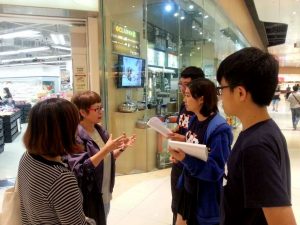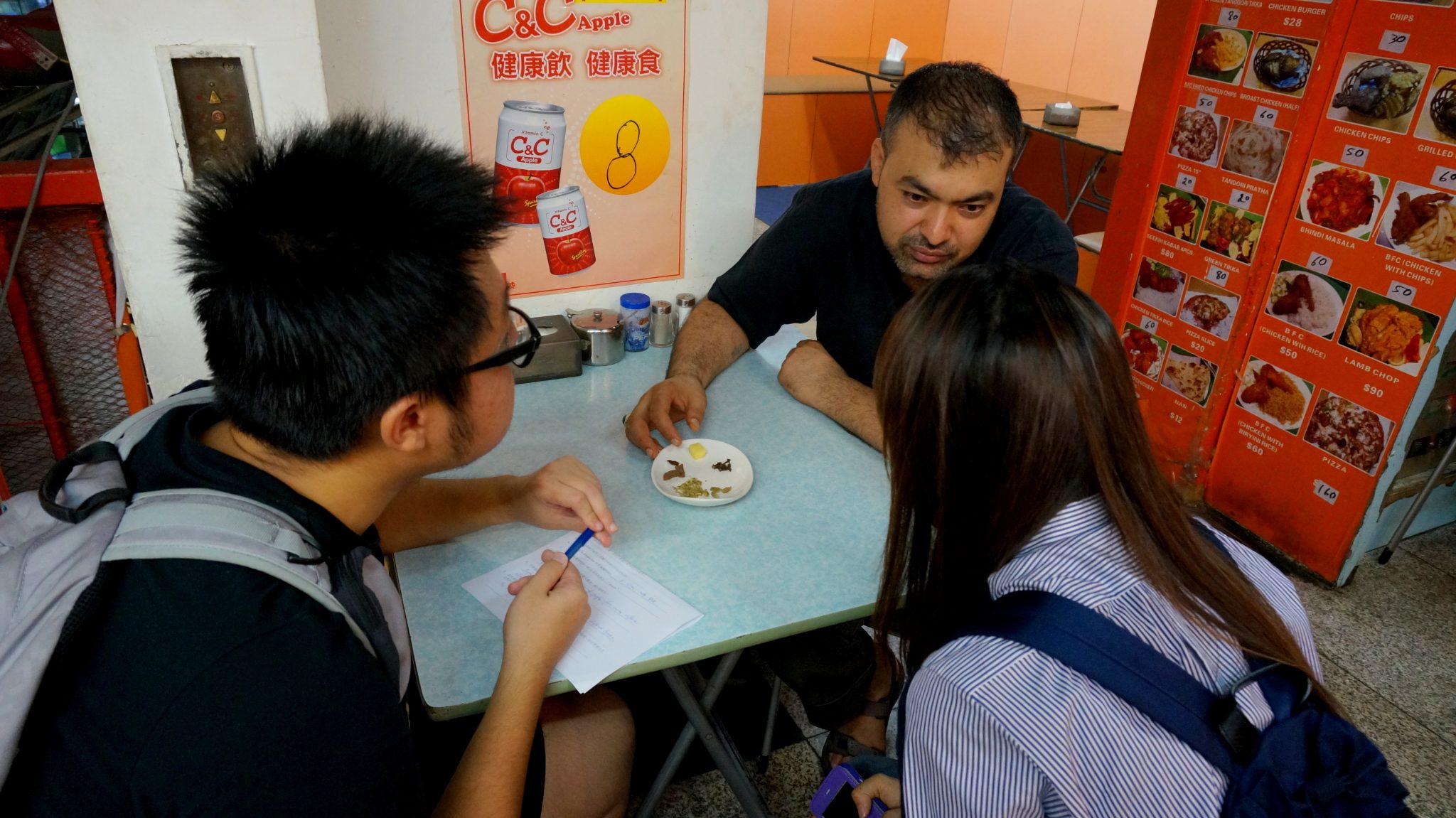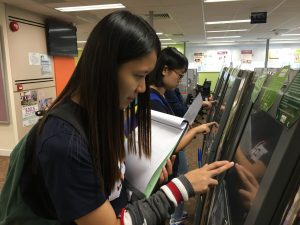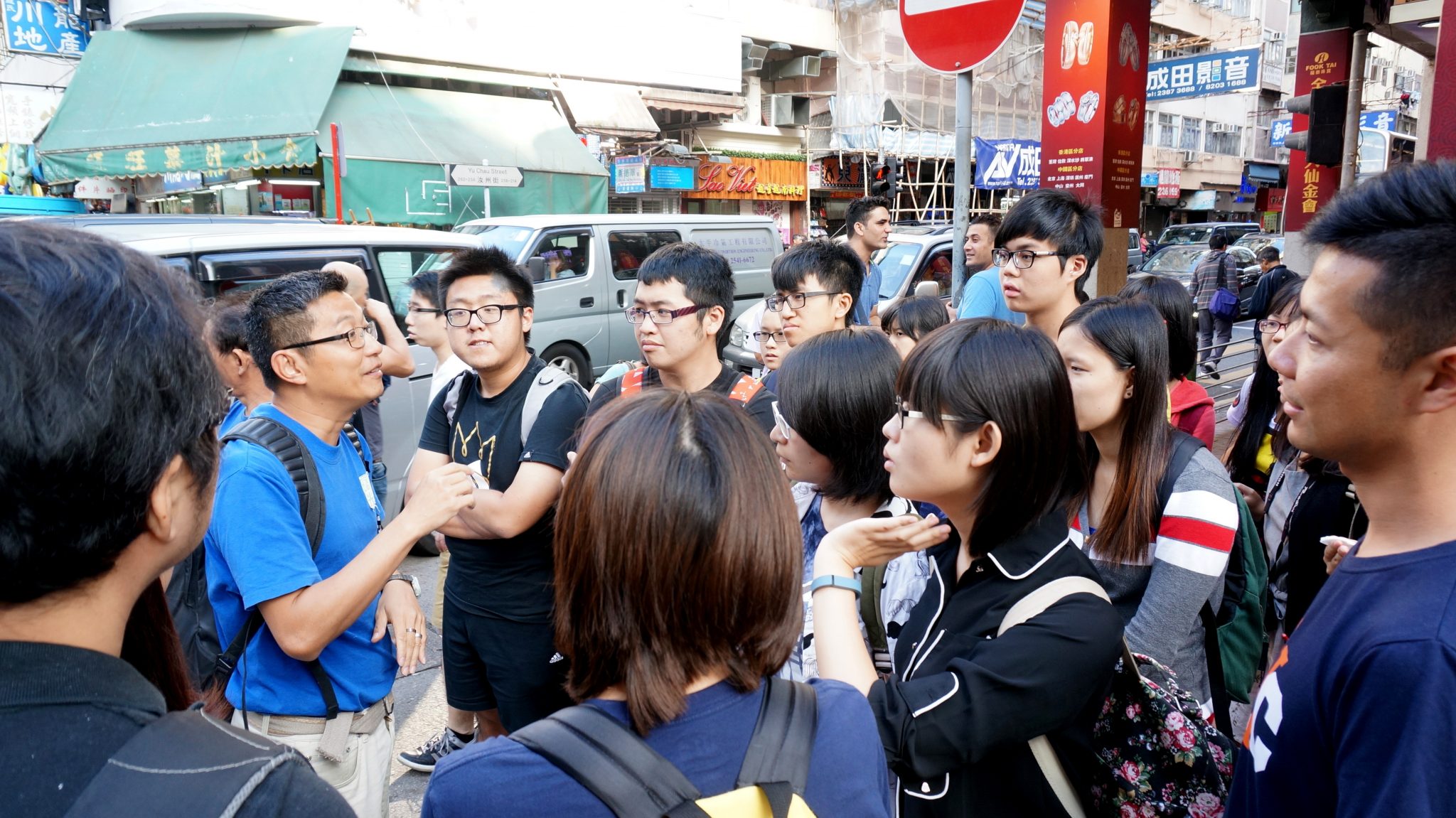
A tour in the Sham Shui Po to observe the urban development and housing issues.
大隊深入深水埗社區實地觀察城市發展及居住問題。
On 1st and 2nd November 2015, Stanley Ho East Asia College organized a trip for 13 students from different disciplines and years of study to visit local communities in Hong Kong. The group, led by Resident Fellow Dr. Sancia Wan and Fellow Mr. Walter Wan (FST), visited the hidden sides of the city, and learned about cultures of minorities, urban poverty and housing problem through field visit. This trip was aimed at helping students develop the competency goals in “Citizenship with Global Perspectives” and “Leadership and Service”.
Upon arrival at Tsim Sha Tsui, the group joined a guided tour facilitated by two volunteers from Cultural Outings, a local non-profit organization, to visit Chungking Mansions which was once elected as the ‘Best Example of Globalization in Action’ by TIME Magazine.
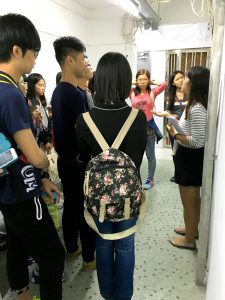
Visited Christian Action’s Chungking Mansions Service Centre which offers assistance to refugees and asylum seekers.
書院一行十幾人到重慶大廈內協助難民和尋求庇護人士的基督教勵行會服務中心參觀。
In the afternoon, the group attended “The Invisible: Exhibition of the Hidden Communities” hosted by the Society for Community Organization (SoCO), where they saw photos and stories illustrating daily lives of the “invisible” groups:- for example, children and elderly living in poverty, low-income labour, refugees, the homeless, new immigrants, and people with mental illness. Mr. Ng Wai Tung, SoCO Community Organizer, presented about the situations facing homeless people in Hong Kong. Led by Mr. Ng, the group also roamed around the old and recently developed parts of Sham Shui Po, a district of the lowest median household income in the city. They also visited an area where homeless people find their sleeping and resting spaces, and had conversations with a few of them.
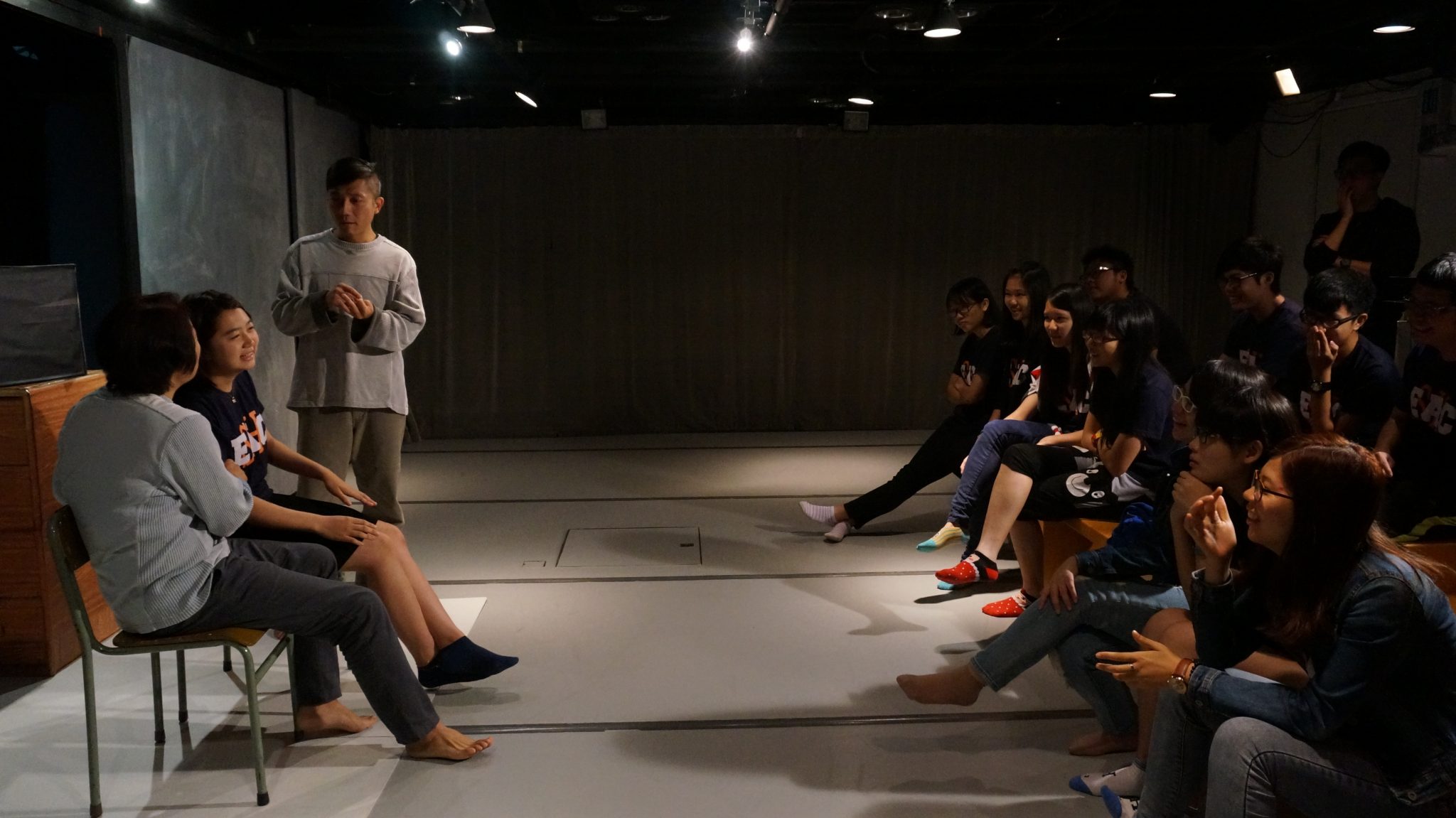
Interpreting the roles in the drama about poverty at the Oxfam’s Interactive Education Centre. 同學投入演繹樂施會互動劇場內的角色。
SHEAC has organized community engagement trips annually or bi-annually since 2013. Students have gained a deeper understanding of the meaning and causes of poverty and social problems facing vulnerable groups with low socio-economic status. The College also hopes that through this kind of experiential activities, students would reflect upon their own role in social development and poverty, foster a stronger sense of civic and service awareness, and ultimately consider possible ways and take actions to help others in need.
何鴻燊東亞書院走訪香港本地社區之旅 培養學生的公民意識及更廣泛的「全球本土化」視角
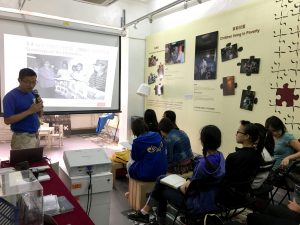
Joined the talk and sharing session about homeless people at the exhibition venue of the Society for Community Organization (SoCO).
同學們參加香港社區組織協會關於無家者的講座及分享會。
2015年11月1至2日,何鴻燊東亞書院13名來自不同學科和年級的學生,在書院導師溫慧珊博士和科技學院高級講師溫日明老師帶領下,走訪了香港不容易被察覺的大街小巷,認識不同的少數文化,還有實地觀察城市貧困與居住問題,了解繁榮背後文化差異與共融、貧富懸殊的矛盾,反思城市發展的問題。此行旨在提供機會幫助學生發展「具有全球視野的公民」及「領導和服務」這些能力目標。
首日早上,書院一行15人抵達尖沙咀後立即參加了當地非營利組織「文化交遊」的導賞,在兩位志願者引領下同學們參觀曾經當選《時代雜誌》「全球化行動最佳典範」的重慶大廈。大廈內有多不勝數的賓館,以及各種咖哩餐廳、非洲小餐館、服飾小店和外匯店。同學們以小組形式與商場裏的巴基斯坦、土耳其、印度和非洲族裔的店主和顧客聊天,了解他們離鄉別井的原因,移居香港前後的日常生活,以及他們以香港為家和自己作為「香港人」的看法。同學們對於在這樣一棟大廈有不同的少數民族大量集中以及這些人都精通粵語,留下非常深刻印象。
當天下午,大隊參觀了社區組織協會主辦的《無形@香港》隱蔽社群生活展,從展覽的照片和故事窺見隱形群體,例如:生活貧困的兒童和老人、低收入人士、難民、無家者、新移民及精神病患者的日常生活。協會的社區組織幹事吳衛東先生還向同學們發表了關於香港無家者面對的困境的簡短演講。在吳先生的帶領下,大隊繼續實地觀察香港家庭收入中位數最低的一區──深水埗,他們還走訪了露宿者的集中地,並與其中幾位露宿者交談。
行程的第二天主要為參加樂施會舉辦的互動工作坊,旨在讓同學們認識香港基層人士的生活面貌,設身處地了解貧窮人士的處境和感受 ,反思大眾對基層人士之看法,尊重不同階層人士的生活模式差異。上午,大隊抵達樂施會位於北角的互動教育中心參加由專業戲劇教育工作者協作及主持的《五‧拾‧米》互動劇場工作坊。「五」是指五十呎的板間房,「拾」指拾荒而來、佈滿一室的雜物,「米」指飯碗、生計 ,而故事透過一個生於貧窮家庭的女孩的故事,同學們直接加入戲劇行動中,透過和演員一起「做」、透過「行動」,一起體會低收入家庭和在職貧窮人士的處境,探討關於貧窮的種種成因、後果和可能的解決方案。
下午,大隊前往天水圍作社區體驗遊,該區位處新界西北區,是發展於80年代末的新市鎮,值得注意的是其位置偏遠、有限的就業機會和高密度的公共屋苑。由該區的社區組織指導下,同學們分成三組完成幾個任務,例如協助居民在就業中心尋找合適工作,與居民訪談,了解他們的日常生活和遇到的挑戰。最後,同學們在匯報討論中總結了他們的發現,並表達了對通過本體驗之旅所了解到的社會問題的看法。
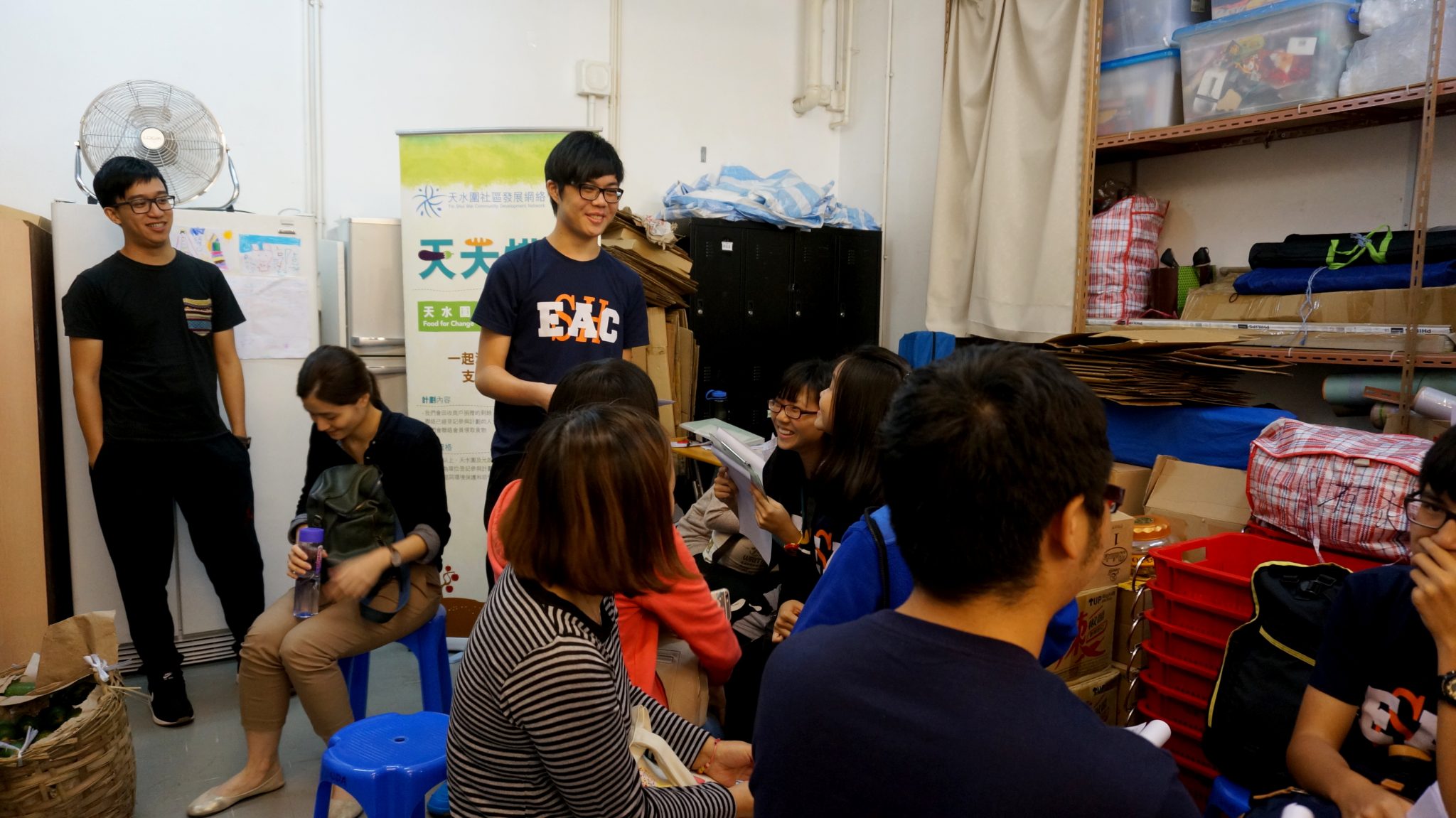
At the debriefing session, students shared their points of view about local poverty and other social problems they observed and learned during the trip.
最後的匯報會上,同學們分享他們對通過本體驗之旅所了解到的貧窮和其他社會問題的的反思。
何鴻燊東亞書院自從2013年起每年或每半年都會組織這一類型社區體驗及參與之旅,從而提供同學們機會認識貧窮的含義和成因,以及弱勢群體面臨的其他社會問題有更深的了解。書院也希望同學們通過此類體驗學習活動思考個人面對社會發展及貧窮的角色,培養更強的公民和服務意識,並由此考慮可行的方法和行動以幫助有需要的人。

